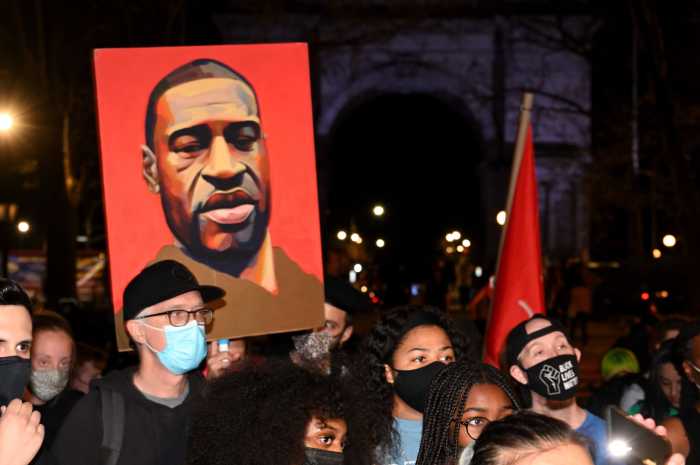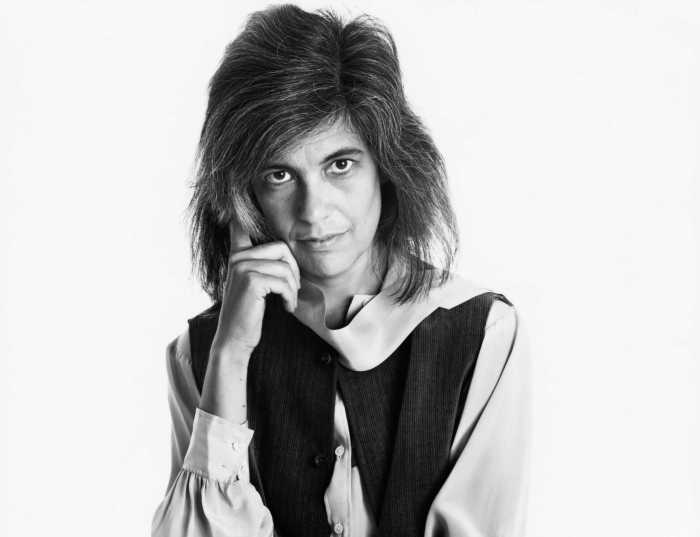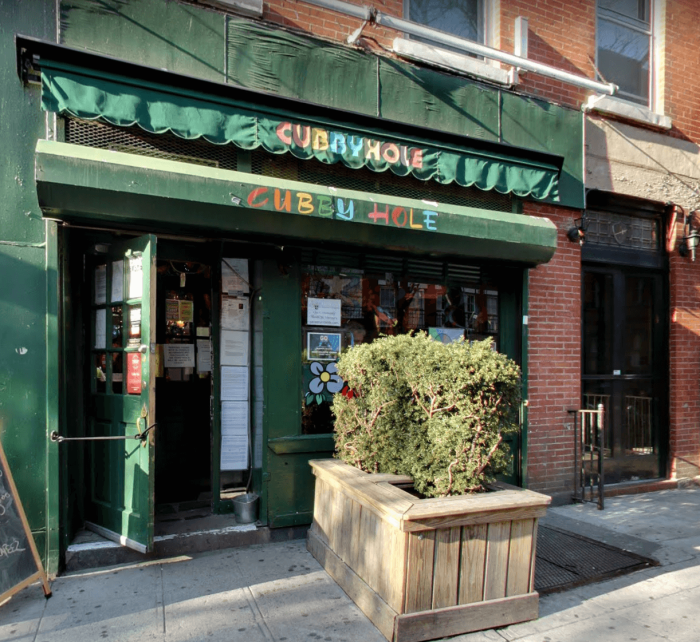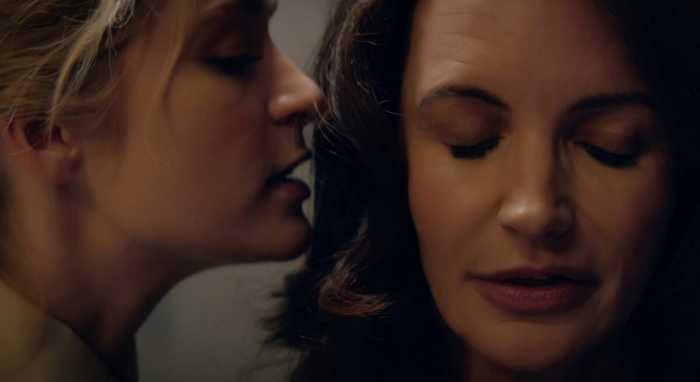The 33rd annual edition of NewFest, the New York LGBTQ Film Festival, will feature more than 130 films, documentaries, episodic showcases, and short film programs October 15-26 both in select theaters and on NewFest’s virtual platform.
The festival is bookended by two documentaries. The opening night film, “Mayor Pete,” focuses on Pete Buttigieg’s recent presidential campaign. The festival closes with director Jonas Poher Rasmussen’s “Flee,” a remarkable animated profile of a gay Afghani refugee.
Here are six noteworthy films premiering at this year at NewFest:
My Best Part
Out gay French actor Nicolas Maury (“Call My Agent”) directs, stars, and co-writes the sad-sack comedy “My Best Part” about Jeremie (Maury), a sensitive gay actor who is hoping to land a role in an upcoming production of “Spring Awakening.” He heads to his mother Bernadette’s (Nathalie Baye) bed and breakfast to chill out and prepare for his audition. He is also escaping his breakup with Albert (Arnaud Valois). If Maury’s gentle film makes its points broadly in the setup, once Jeremie settles into his retreat, he starts to improve. He has some lovely heart-to-heart chats with his mother as well as Kévin (Théo Christine), a handsome young man who is working on his mother’s property. These moving exchanges redeem the film as much as they redeem Jeremie, whose jealousy is at the heart of his emotional problems. “My Best Part” is an assured directorial debut by Maury, who leans into his character’s insecurities, but finds himself in the process. Viewers may resist him, but those who accept him and go on his journey will be rewarded.
The Sixth Reel
“The Sixth Reel” is the latest cinematic piffle from the iconic drag performer Charles Busch. Jimmy (Busch) is a small time dealer in classic movie ephemera. When his friend Gerald dies, Jimmy and Gerald’s niece, Helen (Julie Halston), hold an estate sale and stumble upon the last reel of a thought-to-be-lost Lon Chaney film. This discovery soon creates a madcap scramble among rival collectors. Will Michael (Tim Daly) the NYU professor donate it to a museum? Will Doris Pang (Margaret Cho) sell it to the highest bidder? Jimmy dons drag (in classic Charles Busch fashion) to find out. If this slight comedy is about as unstable as nitrate film stock, Busch, working with his co-writer/co-director Carl Andress, generates a few smiles from some bitchy one-liners, and the game cast feeds into these Hollywood dreams.
Celts
Set in 1993 Croatia, “Celts” unfolds almost entirely in Marijana (Dubravka Kovjanić) and Otac’s (Stefan Trifunović) house during a costumed-themed birthday party for their eight-year-old, Minja (Katarina Dimić). While the kids are all playing rowdily in one room, the couple’s friends and adult family members gather in the rest of the house and misbehave. Director/co-writer Milica Tomovic’s captivating film has limited queer content, Anka (Milica Grujicic) and Nesa (Slaven Doslo) sneak away for a kiss when the power goes out, and Marijana’s sister, Ceca (Jelena Djokic), is jealous that her ex, Zaga (Nada Sargin), brought her new lover Tanja (Jovana Gavrilovic) to the party. However, the minidramas that unfold are involving because Tomovic makes viewers care about these ingratiating characters who are eking out life the best they can under strained circumstances.
Death and Bowling
“Death and Bowling” is writer/director Lyle Kash’s tender, experimental drama about X (Will Krisanda), a trans actor who “wants to be seen.” He finds considerable acceptance in the Lavender League, a lesbian bowling team. However, when Susan (Faith Bryan), the beloved captain, dies, X is bereft. He develops a connection with Alex (Tracy Kowalski), a stranger who attends the funeral and reading of the will. X and Alex soon share their pain — and a bed — and before scattering Susan’s ashes. “Death and Bowling” has a slight plot, but it is highly stylized, with bright colors, dream-like sequences, and two films-within-a-film. However, it is most notable for employing an almost exclusively trans cast, (all of whom are terrific), and crew.
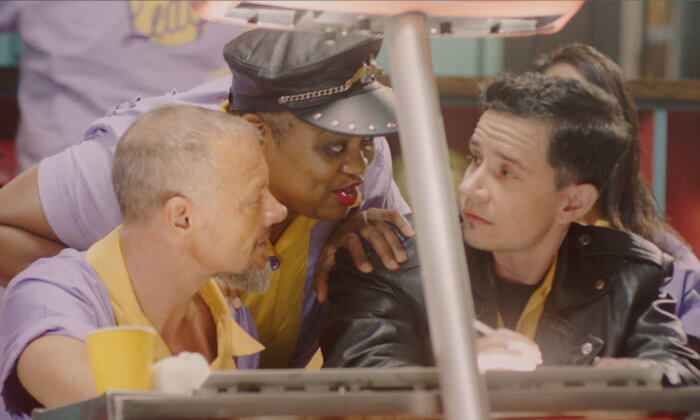
Being Thunder
“Being Thunder” is a respectable documentary about Sherente Harris, a genderqueer Indigenous teenager in the Narragansett tribe. Director Stéphanie Lamorré observes Sherente’s courage to live authentically while seeking to gain the acceptance of others. Sherente’s family is remarkably supportive, and scenes of them together show their collective strength and resilience — especially when Sherente faces discrimination at Powwows, or recounts stories of racism and homophobia. The film chronicles Sherente’s efforts to get into college and observes family and tribal ceremonies. It is a drawback that “Being Thunder” is crudely filmed and edited, but Sherente’s spirit still comes across clearly.
Raw! Uncut! Video!
“Raw! Uncut! Video!” is a Fun! Celebratory! Documentary! about Palm Drive Video, a gay porn company run by Jack Fritscher of “Drummer” magazine fame, and his partner Mark Hemry. The men made fetish, kink, and fantasy videos between 1985-1997 with the slogan, “Our camera goes where you’d like to put your nose.” Their approach invited audience “interaction,” which was critical during the AIDS crisis, when safe sex was best done alone, and at home. “Raw! Uncut! Video!” features plenty of clips from Palm Drive productions (some pretty graphic) as well as interviews with stars of their films, porn historians, and fans. There are also brief discussions of the crackdown on pornography and how the company dissolved as the internet started up. Directors Ryan A. White and Alex Clausen generate considerable pleasure with their film that details Fritscher and Hemry’s efforts to make sex-positive films for eager and grateful consumers.
NEWFEST | October 15-26 Various Theaters and online


